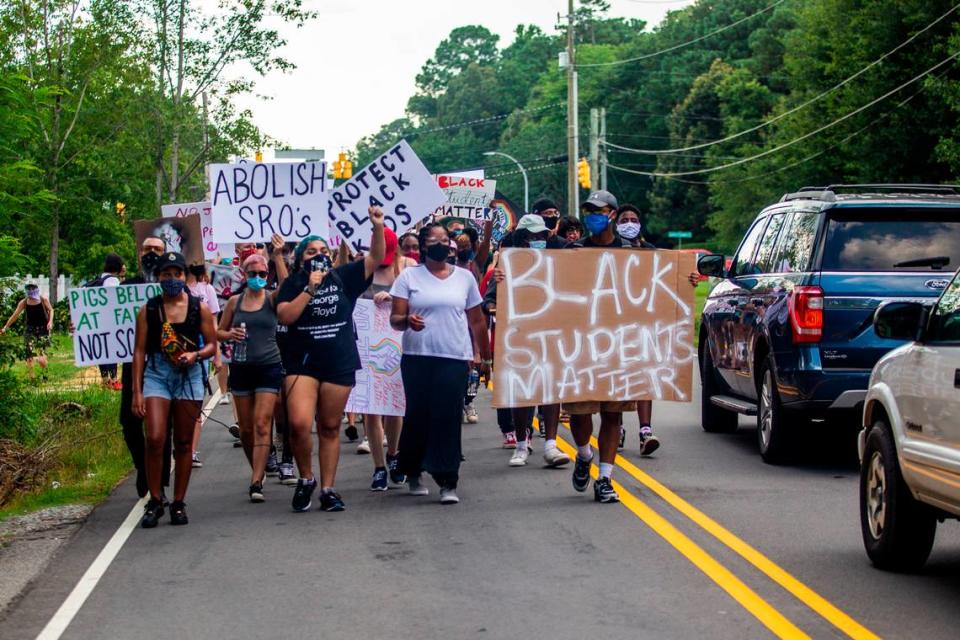Wake will keep police in schools. Some say that’s hurting Black and brown students
Police officers will remain in Wake County schools for the next three years despite concerns from some school leaders that the officers may be overly targeting Black and brown students.
The Wake County school board voted to renew an agreement with local law enforcement agencies governing the role of school resource officers through June 2027. The board also approved contracts with the different agencies to provide school resource officers for the upcoming school year.
School administrators say the updated memorandum of understanding spells out when school resource officers should intervene as well as ensuring they receive appropriate training to work with students.
“It clearly defines the SRO roles and responsibilities,” Kendrick Scott, Wake’s senior director of security, told the school board before the vote. “It provides very specific definitions of student misconduct where the SRO intervention is appropriate and where it is not.”
School board member Toshiba Rice was the only member to vote against renewing the memorandum of understanding or contracting for the officers. She said students of color feel like they’re being targeted by school resource officers.
“I will continue to always vote no for SROs until we see a real place of effectiveness for them for all students in Wake County, not a particular set of students,” Rice said.
Rules for SRO intervention
The county’s law enforcement agencies provide officers for every Wake high school and middle school and for some elementary schools. The memorandum of understanding is periodically updated.
The agreement was updated in 2021 to add wording about when officers should intervene and how much force they should use. The new agreement carries over that theme by saying it’s not anticipated that law enforcement intervention will be necessary in response to the majority of student misconduct.
“The parties agree that law enforcement and SRO intervention should be limited to those incidents of student misconduct that present a threat to the school environment and are not more appropriately handled through referral to another resource,” according to the agreement.
Scott told the board that school resource officers receive training in areas such as deescalation tactics and equity.
Physical police action like breaking up fights should not be the majority of what school resource officers do, according to Superintendent Robert Taylor.
“It really is not about security and making sure that a building has a person who has a gun and a badge,” Taylor told the board. “I can tell you that having seen SROs from the mid ‘90s up until where we are now, it is completely different. SROs engage in a tremendous amount of training.”
Concerns from Black and brown students
The district’s assurances didn’t convince some people.
Wake should seek alternatives to school resource officers, such as more counselors and using mediation, according to Surena Johnson, a parent-organizer for the Education Justice Alliance. The group has previously asked Wake to remove police from schools.

“What studies have shown from the ACLU is that Black and brown students are more affected by a police officer or law enforcement being inside the school system,” Johnson said during public comment. “Those arrest rates are tremendous in comparison to their counterparts.”
Johnson’s concerns were echoed by Rice, the school board member. Rice said she wanted to see more results from efforts such as use of deescalation training.
“What we need is action because, unfortunately, our children that are in this system who look like me, my BIPOC (Black, indigenous and people of color) families, they need to see a different outcome than what we’re seeing,” said Rice, who is Black. “I refuse to sit here around the table and say ‘very good, that’s great, that’s nice’ and continue to do the same thing for another 12-13 years.”

